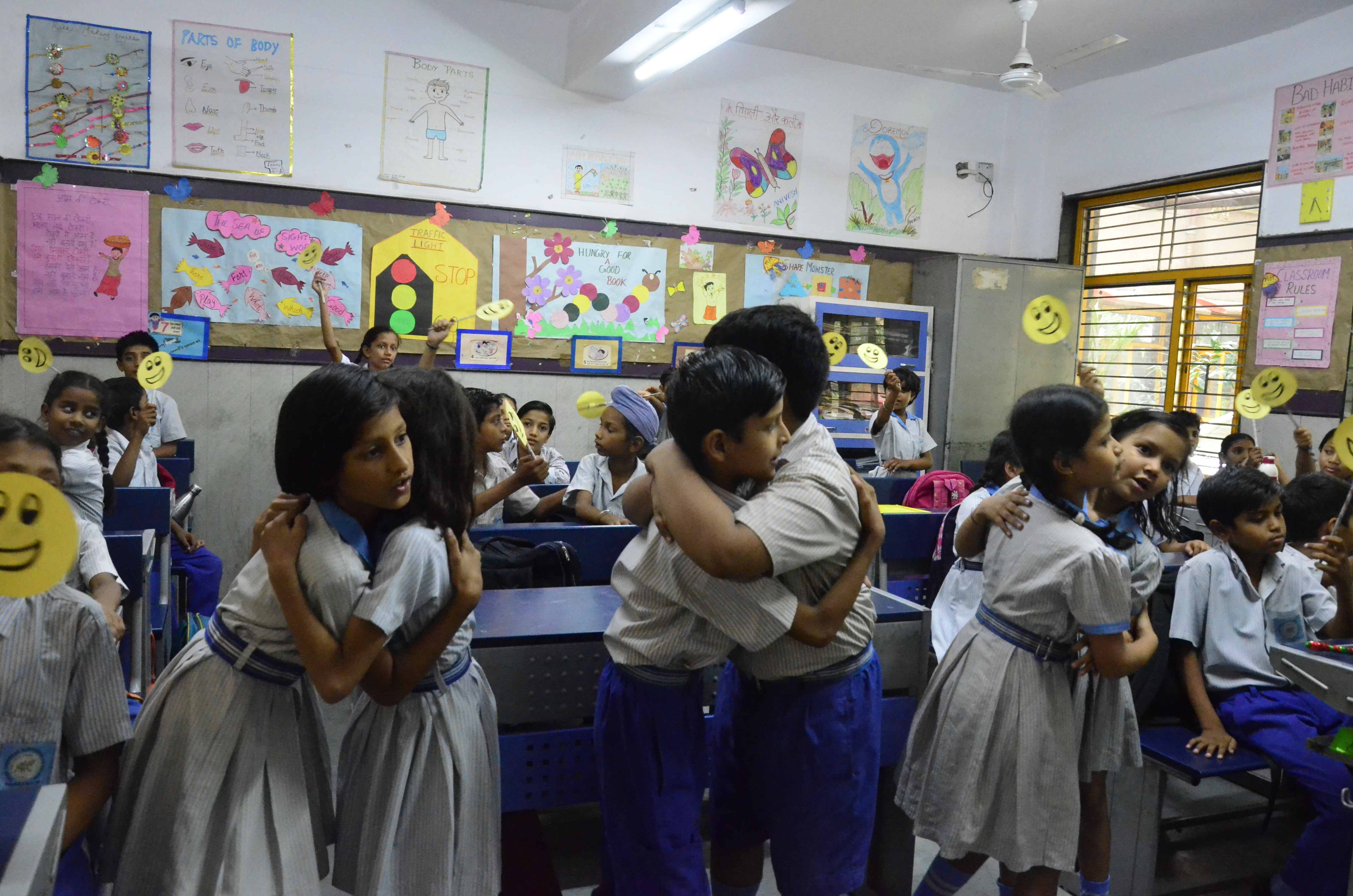Have you ever been to a classroom where you are welcomed by students standing and monotonously singing “Gooooooooood Morning Madam/ Sir, we welcome you” especially in primary or middle school settings. I am sure there are vernacular versions of these that we might have come across at different points of time. Do these greetings indicate that students are welcoming you with joy or is it another ritual a student is asked to perform without understanding its requirement? While visiting government schools in different parts of India, I have regularly observed teachers exercising power by calling out loud for everybody to be completely silent in class, by holding a stick in a hand as a threat to invite socially desirable behaviour, by refusing to allow children to access football in a recess period, or by making students welcome them with sing-song greetings.
Teachers use their position of power to maintain control and discipline in the classroom. Though it enables compliance amongst students but curtails their ability to be creative thinkers, take initiative and share opinions, all the essential skills that we need in our future generations. Are these lopsided power dynamics nurturing young people or preparing them for life? What are the gains and losses of holding power for adults? This power dynamics was challenged by a young person at a Dream Outdoor Experiential Camp in the outskirts of Bangalore I was facilitating. This camp was designed for 35 young people coming from vulnerable and socially-emotionally adverse circumstances to experience self-awareness and develop meaningful interpersonal relationships. While the facilitators were establishing the context of the camp, this young person, asked “Why are you calling us young people and yourself as adults, just because you are older in age?”. I marvelled at the courage he showed up in the room to exercise his agency to voice his opinions and it challenged our collective thought process. We changed the vocabulary we used by inviting everyone to find a common neutral names for all the participants of the camp (which essentially were the young people) and the volunteers of the camp (which were the adults). We mutually decided to address the participants as ‘Hohos’ and the volunteers/ facilitators as ‘Dodos’. This created trust in the group and made it safe to explore. I realised that there is a place that young people really strive to find – to feel equal and worthy of respect, away from hierarchy and power structures.
All of us have a valid desire to be seen, heard and wish to have a sense of autonomy and control over our lives. When we feel powerless or restricted, we try to reclaim some power and control. When classrooms do not provide a space for young people to feel respected as equals, they find different, sometimes disruptive ways to regain control. During the online classes held during the Covid-19 pandemic, teachers found it difficult to control the classroom. They felt helpless and often complained about being taken over and bullied by the students, who were more familiar with technology and had the upper hand. For the teachers, the tables had turned.
The need to redefine power structures in a classroom can only be realised when teachers see the immense potential of investing in sharing of power, and this is not about completely taking a back seat or accepting indiscipline. It requires facilitating the space in a way, that invites agency of young people’s voice to be accounted, seen and heard which is an act of justice against the power structures. This helps them feel equal in the room or space, despite the differences. Inviting them to make a choice, creating spaces for their opinions to be shared, creating opportunities to learn from them, co-designing the classroom space, co-creating and sharing the annual goals, creating spaces for disagreements, meeting them where they are, having open dialogues and unlocking student leadership contributes to them forming a healthy self-concept, which affirms that the adult around is reliable, and that they are worthy of respect, love and care, and so is the world. It develops their creative confidence to take on challenges in their own lives and be collaborative. It’s not the events or the opportunity alone but the experience of it, around feeling safe, significant, valued, cared for that gets embodied and acts as a point of reference for humans to keep coming back to and navigate through the difficulties in life.
In the entire process of sharing power, it is possible that we, as adults, might feel challenged and confused around when to step in to exercise power and when to create opportunity and witness young people take lead. This brings us to reflect on the larger question of what makes us strive for power and maintain it at all costs. It is an overwhelming journey; the invitation is for us to pause, reflect, trust oneself, the young people in our life and our experiences. It is only when we feel empowered that we can create a space for young people to feel empowered. Next time while entering the classroom, believe that your voice matters and so does the voice of those growing up in front of us.
About the Author:
Tania is a trauma informed mental health practitioner and a context facilitator at Dream a Dream. She is intrigued by the intersections of social identities, education and mental health. She is on a journey to weave and facilitate spaces to make thriving possible for people across ages using creative, social, emotional and therapeutic approaches.


